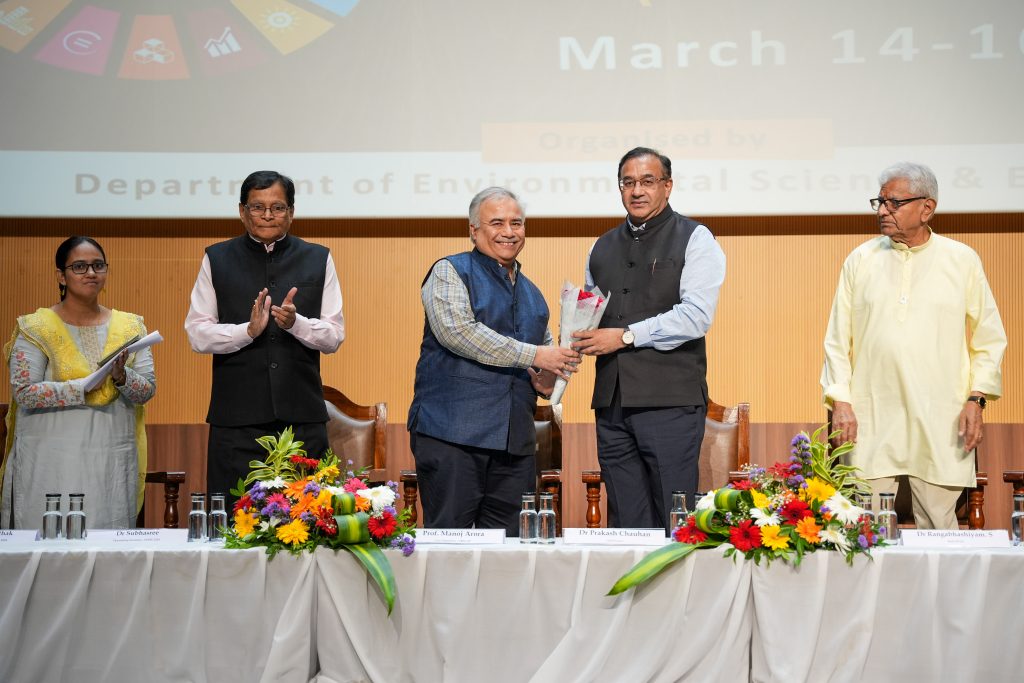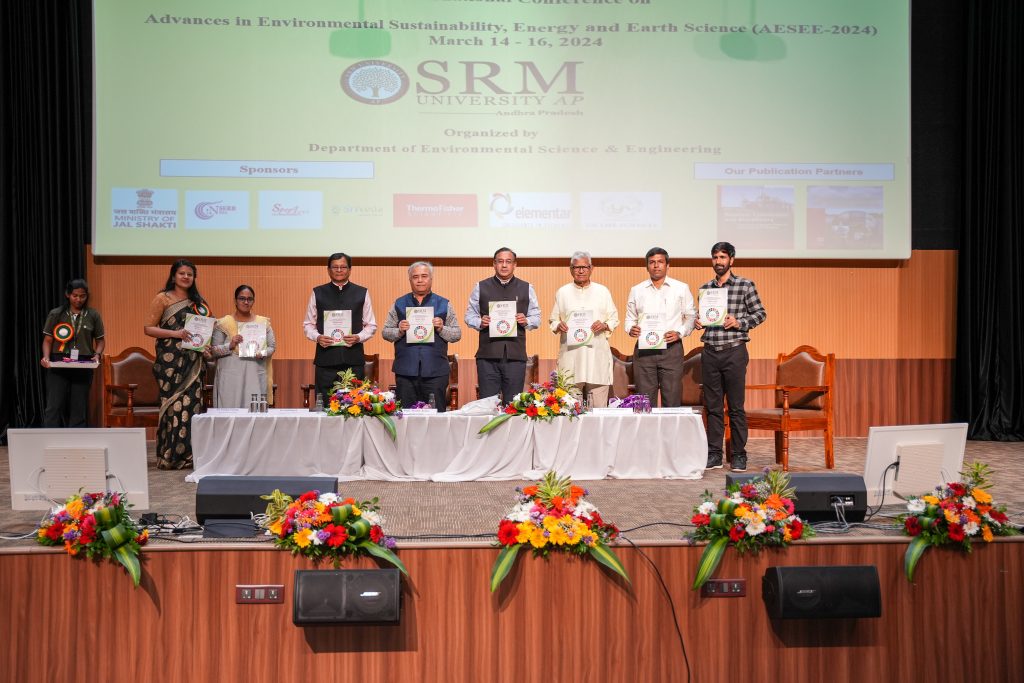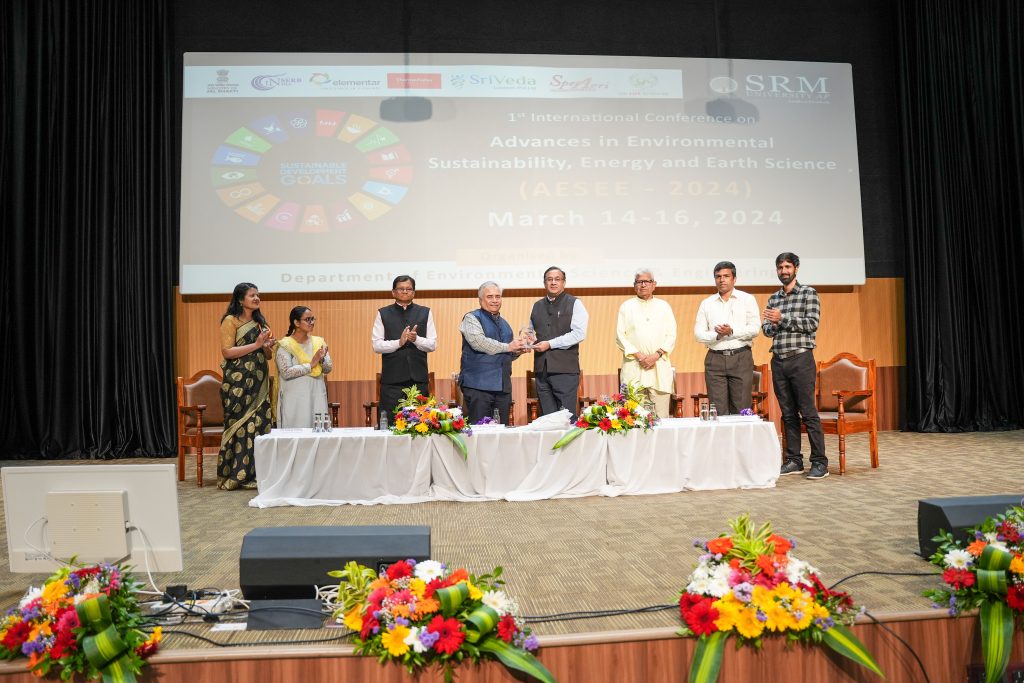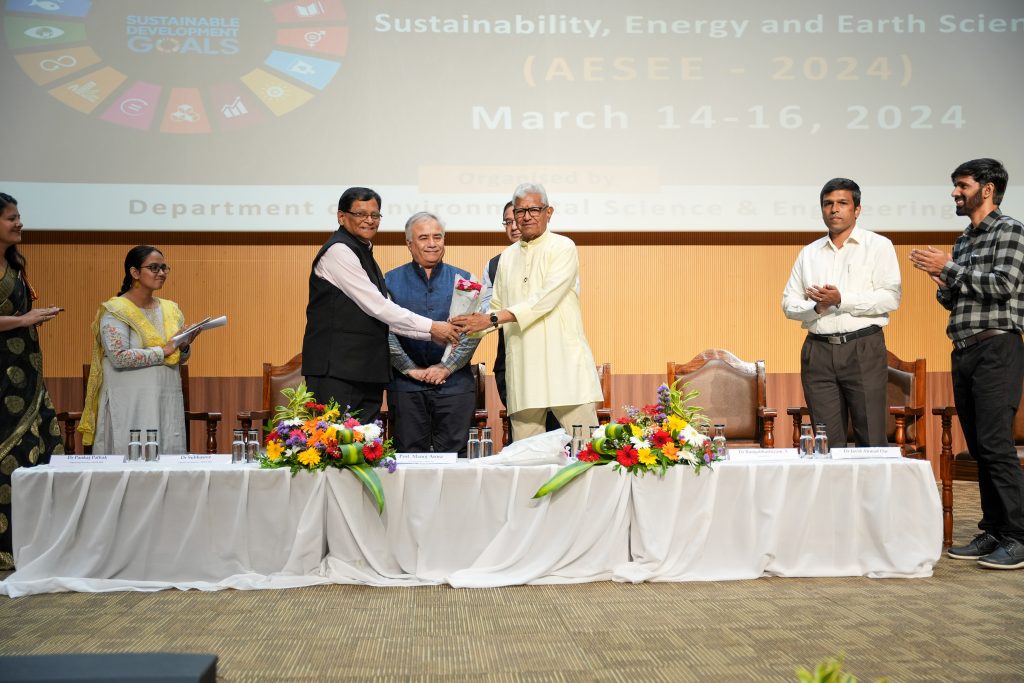Current Happenings ENVS News
- Critical Analysis of the Influence of Hydroclimatic Variability and Anthropocene on the Groundwater of the Sundarbans May 2, 2024
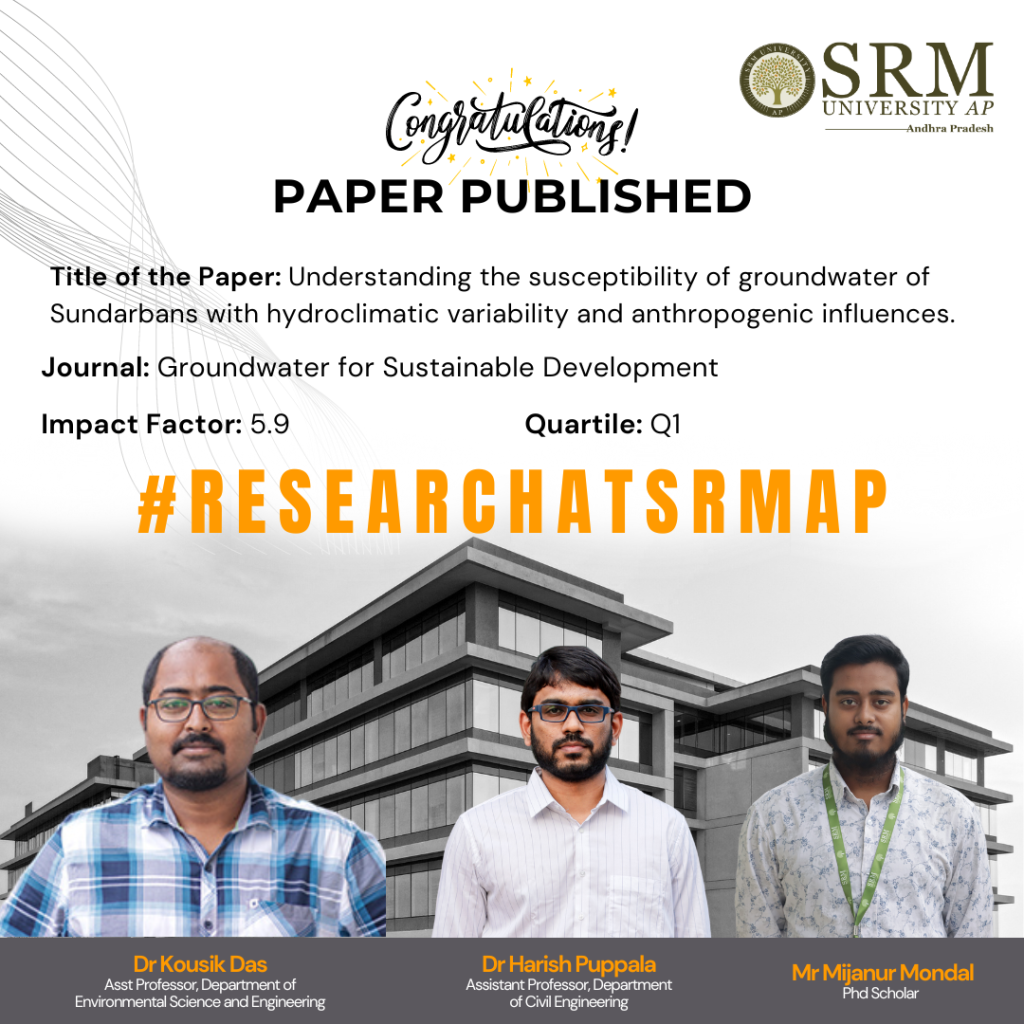
The water crisis in India, especially in the coastal regions, has worsened alarmingly, coercing environmentalists and researchers to critically study the reason behind this phenomenon. The Sundarbans region faces a scarcity of drinking water in terms of quality and quantity due to various reasons. Dr Kousik Das, Asst. Professor, Department of Environmental Science and Engineering, Dr Harish Puppala, Asst Professor, Department of Civil Engineering and Mr Mijanur Mondal, Research Scholar from the Department of Environmental Science and Engineering has conducted a groundbreaking study on the increased salinization of water due to human activities. The research trio has published a paper titled “Understanding the susceptibility of groundwater of Sundarbans with hydroclimatic variability and anthropogenic influences” in the prestigious Q1 journal Groundwater for Sustainable Development, which has an impact factor of 5.9, critically analysing the numerous factors that affect the quality of drinking water in the Sundarbans region.
Abstract
Coastal aquifers worldwide are experiencing increased salinisation due to climate change and human activities. Sundarbans, in India, is one such area where this phenomenon is noticed at an unprecedented rate, making drinking water unpotable for consumption. Existing studies lack a comprehensive analysis of the underlying causes. This study conducts a systematic literature review to identify drivers of groundwater salinisation, examining climate change parameters such as rainfall patterns, sea level rise, El Niño-Southern Oscillation, and tropical cyclones. Significant groundwater level declines from 1996 to 2017 are primarily attributed to variations in the Indian Ocean Dipole and El Niño Southern Oscillation, affecting rainfall and recharge rates. During tropical cyclones, groundwater levels rise rapidly, and quality is sensitive to El Niño Southern Oscillation. Rising sea levels, changing rainfall, and increasing population density worsen salinisation. Shallow aquifers have high salinity, whereas deep aquifers exceed permissible limits. This underscores the urgent need to address drinking water scarcity and potential migration resulting from complex interactions between climate, population, and groundwater management.
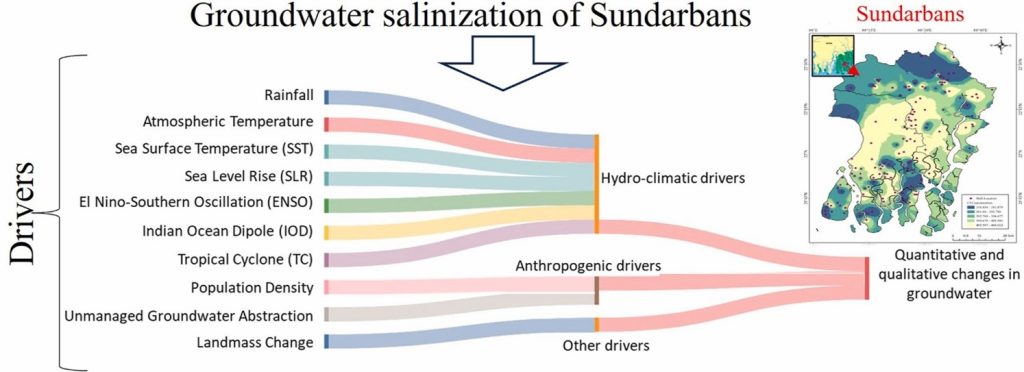
Social Implications of the Research
- Water Quality Monitoring: Implementing regular monitoring of salinity levels in groundwater to ensure compliance with safety standards.
- Community Awareness Programmes: Conducting educational campaigns to inform local communities about the risks of high salinity levels in drinking water and promoting the judicious use of water sources so that unscientific abstraction can be reduced.
- Policy Development: Formulating policies at the local and national levels to regulate salinity levels in drinking water and ensure public health protection.
- Infrastructure Improvement: Investing in water treatment facilities or technologies to remove high salt levels from groundwater sources. Alternative sources and rainwater harvesting can be taken into consideration.
Collaborations – IIT Kharagpur, India
The research team plans to work on Groundwater vulnerability modelling using AI/ML in Sundarbans, India next. The team has begun collecting primary data using questionnaire surveys and interviews to throw light on socio-economic conditions and to understand the core reasons for the water crisis and health and psychological issues due to water unavailability, especially during extreme events like cyclones.
Link to the article
Continue reading → - AESEE ’24: Promoting Global Dialogue on Environmental Sustainability March 15, 2024
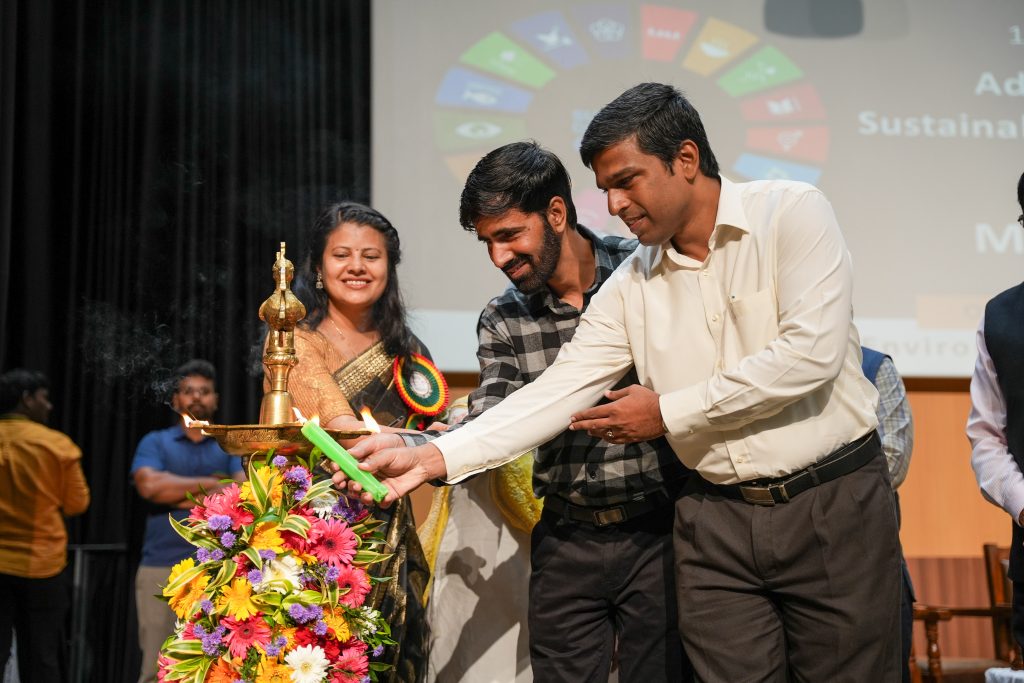
The Department of Environmental Science and Engineering at SRM University-AP organised its 3-day International Conference on Advances in Environmental Sustainability, Energy and Earth Sciences ( AESEE 2024). The inaugural session on March 14, 2024, featured industry experts, with Prof. Prakasham Tata from the Center for Transformation of Waste Technology, USA, as the Keynote Speaker and Dr Prakash Chauhan, Director-National Remote Sensing Centre, Indian Space Research Organization, as the Chief Guest for the event.
He highlighted the attributes of the department and lauded the efforts of the faculty and students who contributed to the publication of 165 articles, of which 106 were featured in Q1 Journals. This momentous occasion was witnessed by Vice Chancellor, Prof. Manoj K Arora; Advisor, Prof. V S Rao; Associate Professor and Head of the Department, Dr Rangabhasiyam Selvasembian; the organising secretaries, Dr Javed Ahmad Dar, Dr Pankaj Pathak and Dr Subashree Kothandaraman, along with participants from diverse parts of the globe, both online and offline.
Vice Chancellor-Prof. Manoj K Arora, in his address, emphasised that a congregation of such an intelligentsia is the need of the hour. He implored the audience to work at ground level and not confine themselves to mere talks and conferences, “go to the community and provide solutions, and solutions cannot be provided in the classrooms alone”, he stated.
Prakasham Tata, in his exuberant address, stated that the nation does not lack the intelligence or manpower to combat the alarming ecological crisis; It is the lack of trained personnel, pollution control boards, corruption and lack of effective cooperation between societal institutes that is causing a lax. Prof. Tata insisted that “universities like SRM AP are knowledge centres and have the tenacity and wisdom to combat the growing threats.” He issued a clarion call to all the youngsters and environmental enthusiasts to walk the talk.
Dr Prakash Chauhan, Director of the National Remote Sensing Centre, in his speech, cited Indians’ inherent way of living a sustainable lifestyle and went on to encourage the young participants in attendance to become true ‘karma yogis’ by innovating and finding new ways to promote and work towards environmental sustainability. He implored the youth to brainstorm innovative ideas that could gradually lead to monetisation opportunities while also benefitting the environment.
The inaugural day of the conference also marked the unveiling of the abstract book compiled by the department. Dr Javed Ahmad Dar, Assistant Professor and organising secretary of the conference, mentioned that the book consists of a total of 271 abstracts across 15 thematic areas. The event concluded with the Vice Chancellor and the Advisor honouring the guests with a token of appreciation.
Continue reading →


